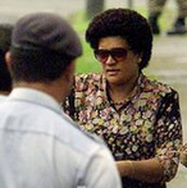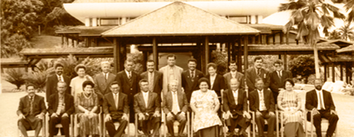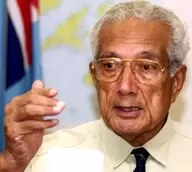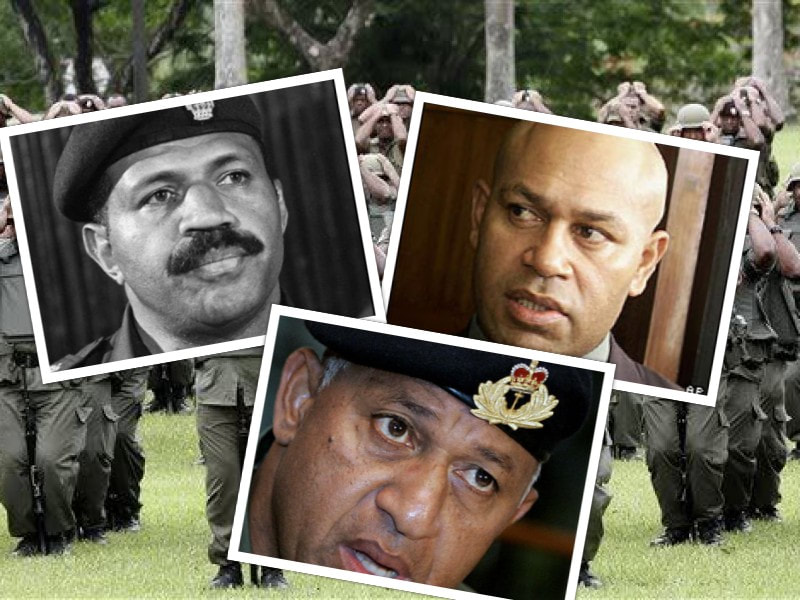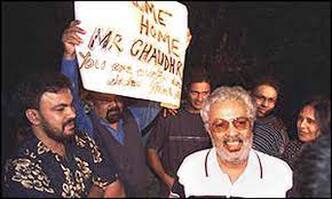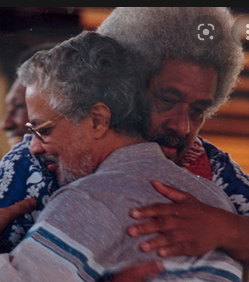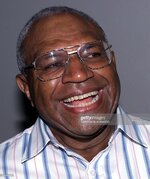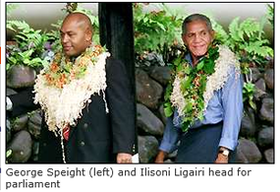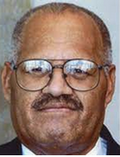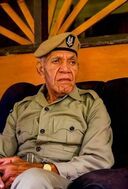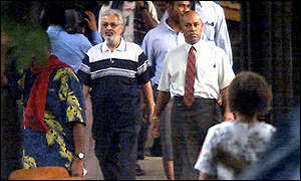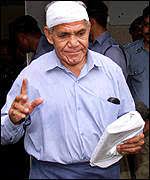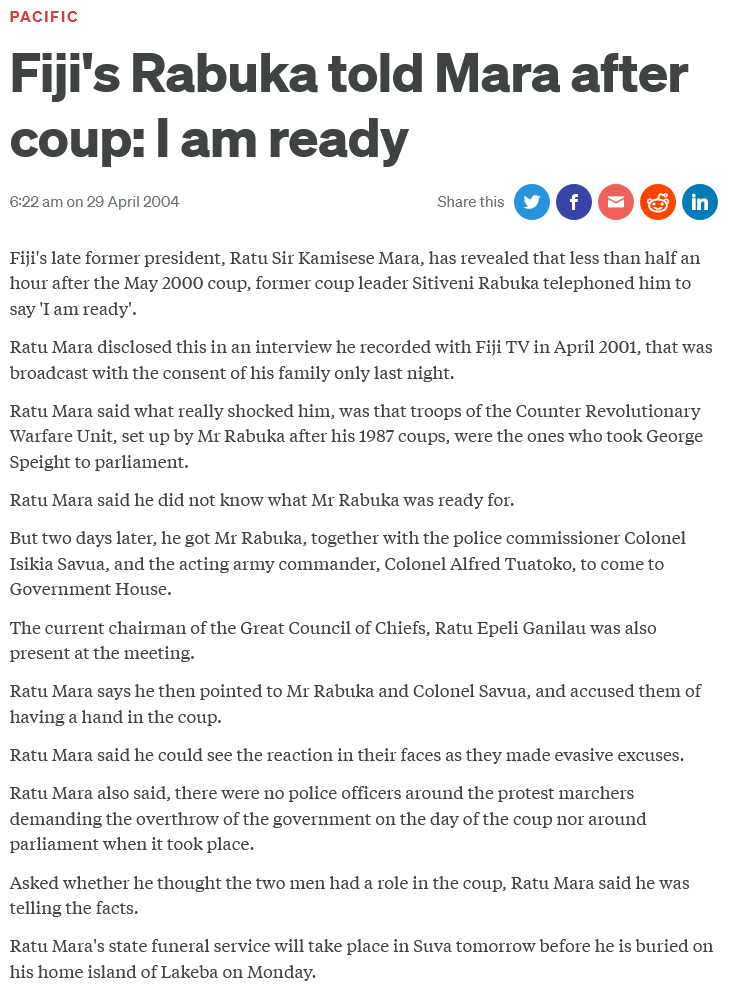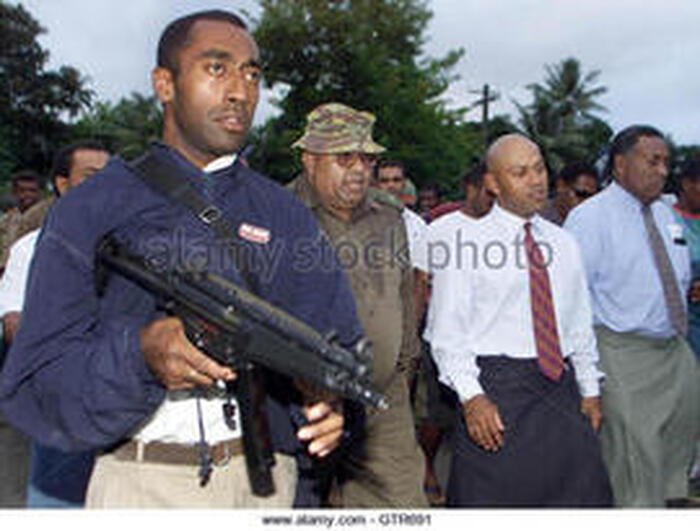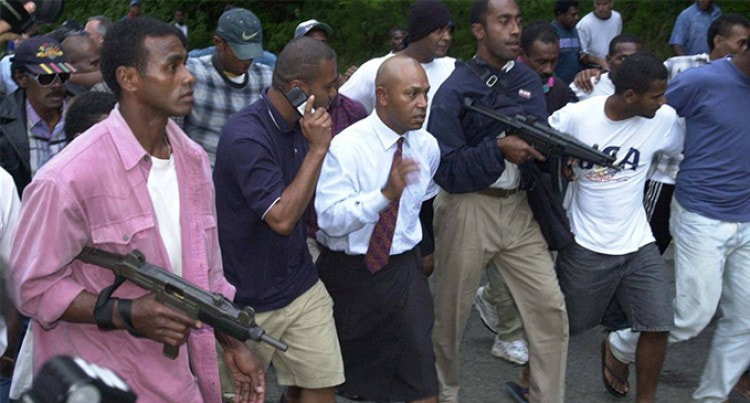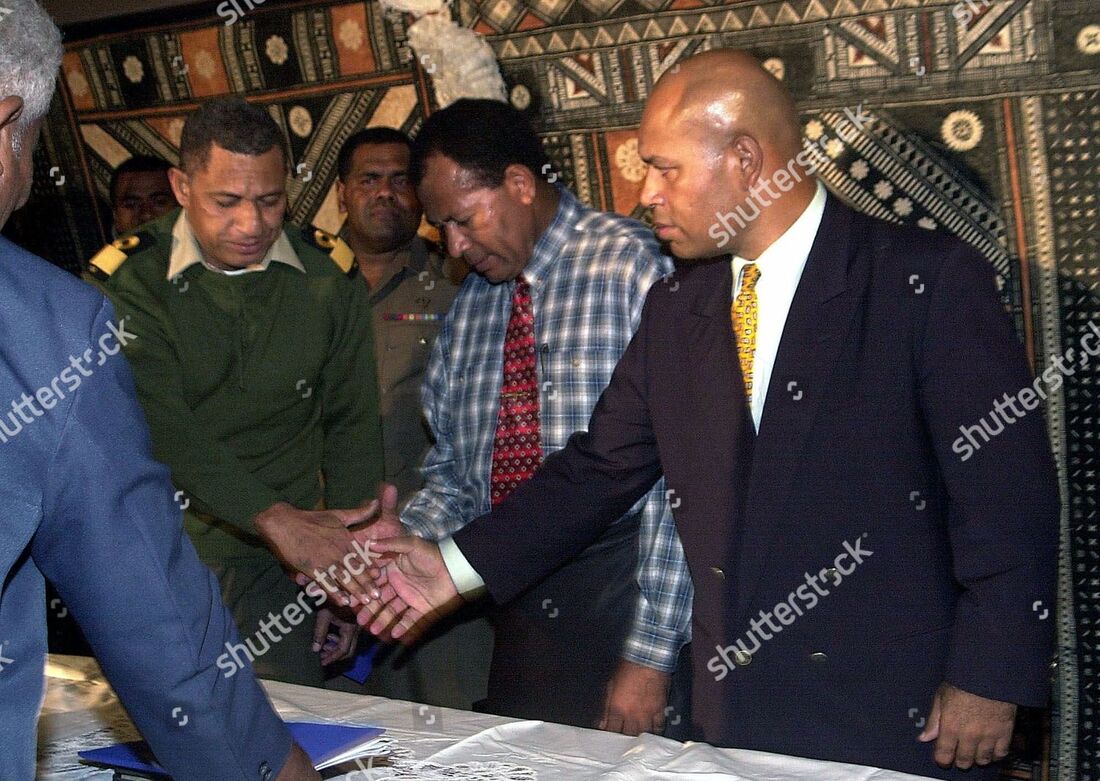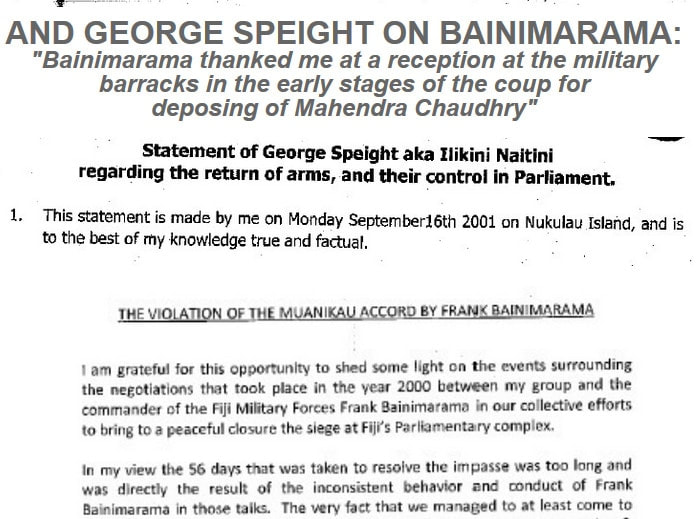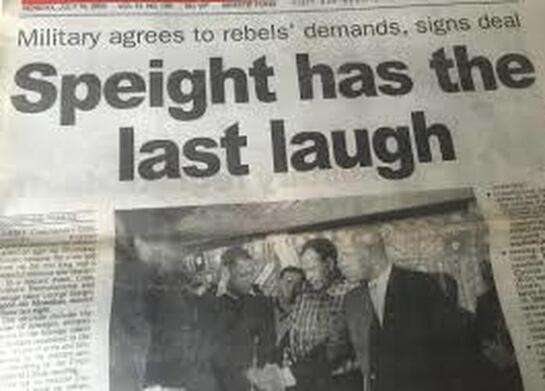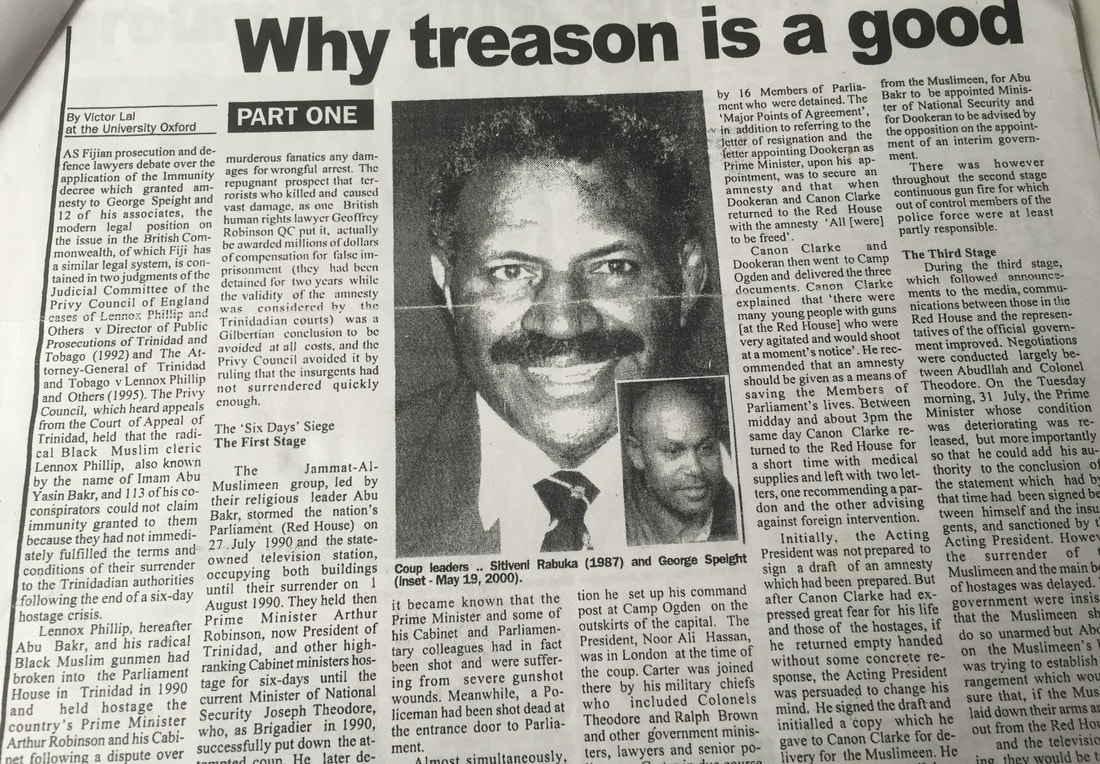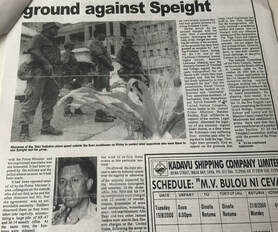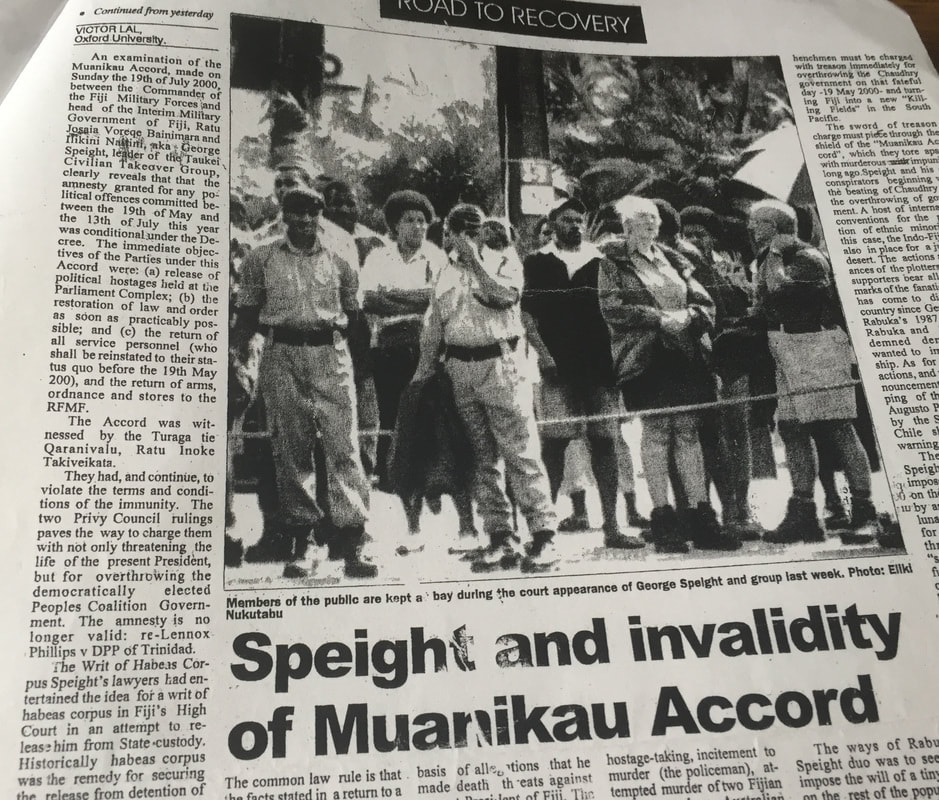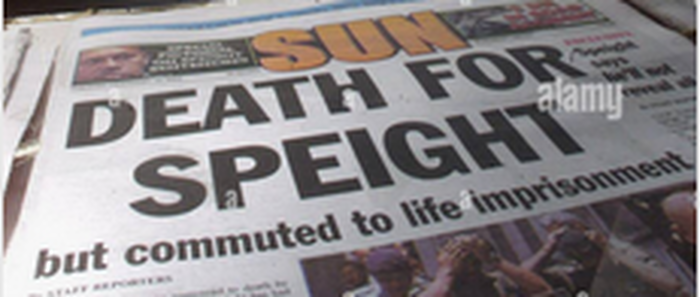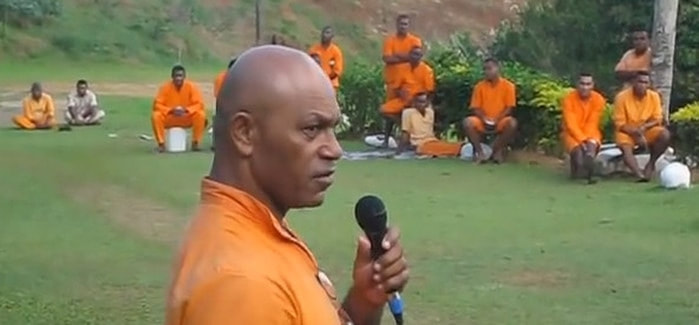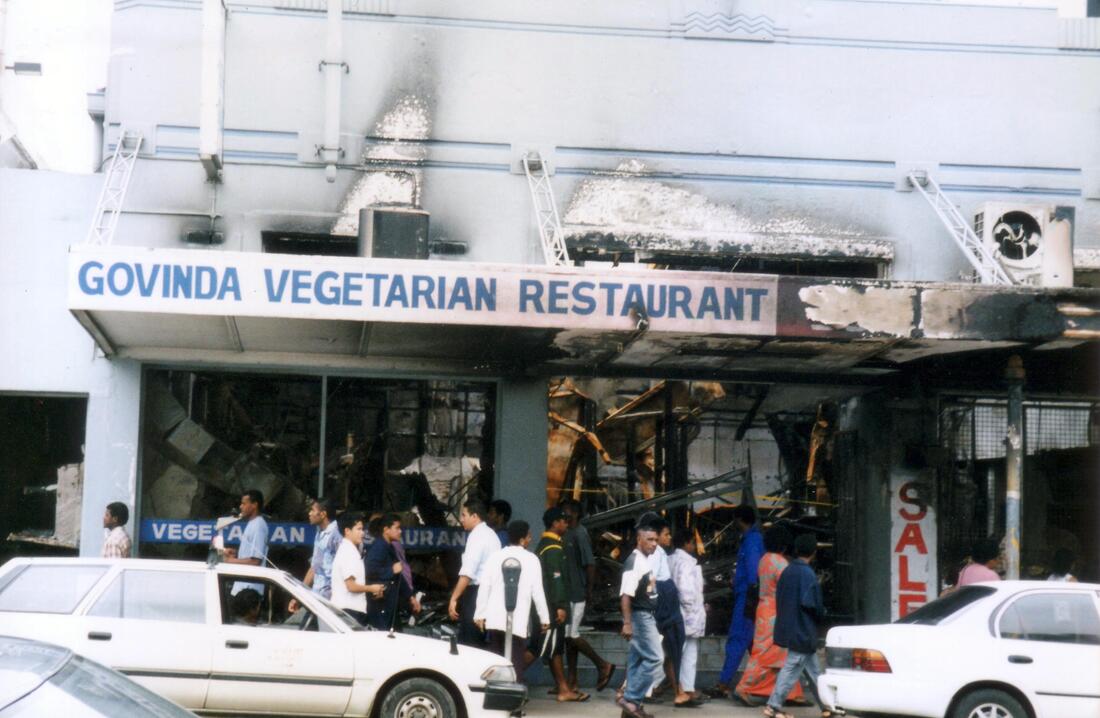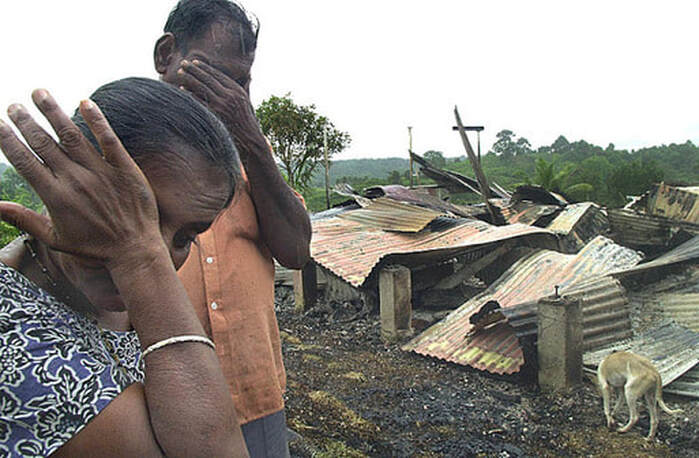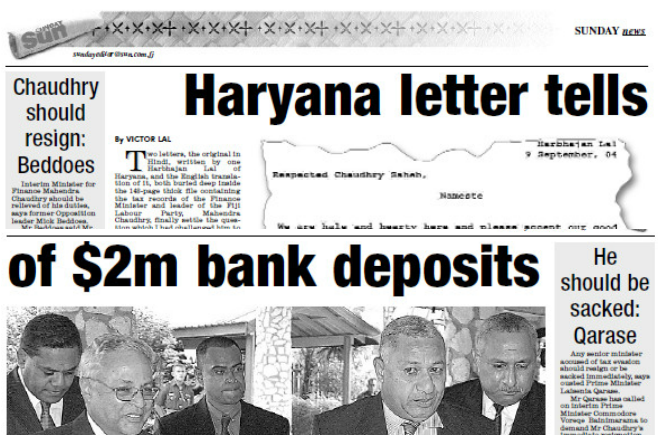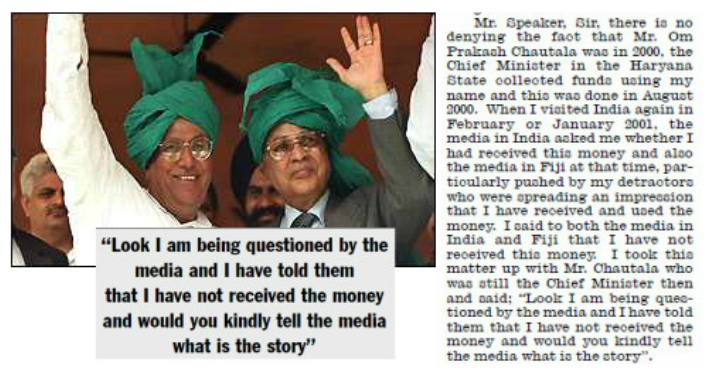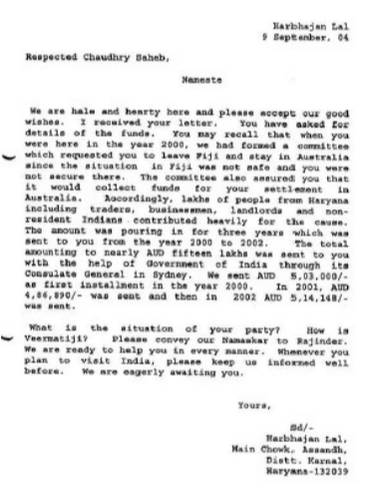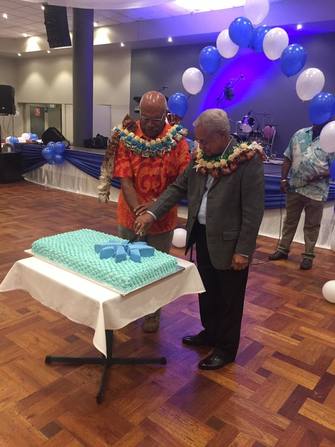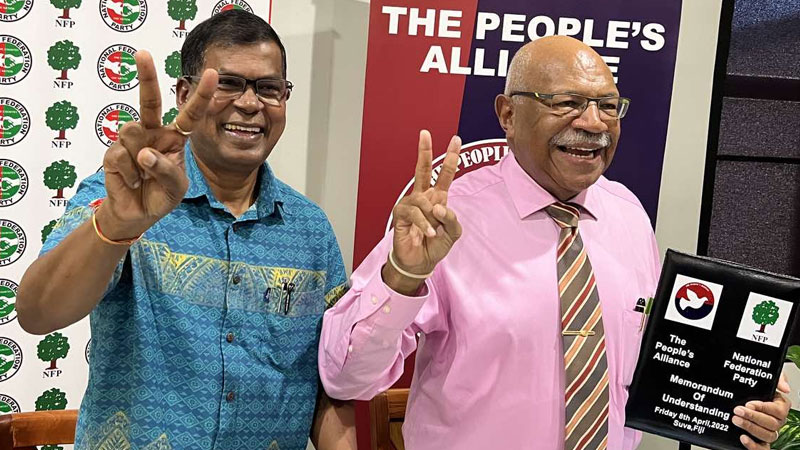The Price of a COUP: 19 May 2000
"May 19 marks the 22nd anniversary of the 2000 coup that removed the popular Labour coalition government of Prime Minister Mahendra Chaudhry after just a year in office. Some 22 years later, people are realizing that had the Chaudhry government been allowed to stay for its full term in office, Fiji would have been a much more advanced and happier place to live in." FLP, 19 May 2022
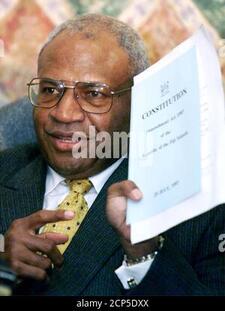
Fijileaks: Astonishingly, in June 2000, shortly after George Speight and others seized Parliament, Rabuka told the world that the old South Africa might be a model for Fiji. He no longer seemed to believe in a multi-racial chamber. Rabuka said Fiji might need racially segregated houses of parliament, ‘like pre-Mandela South Africa’, as part of a constitutional settlement to its problems. The solution to Fiji's problems ‘must come with a constitutional arrangement that [i-Taukei] Fijians can work with ... and at the moment, they cannot work with the 1997 Constitution’.
*Basically, he was disowning the very 1997 Rabuka-Reddy Constitution that PAP-NAG is now brandishing around the country. The typical opportunist in time of crisis
*Basically, he was disowning the very 1997 Rabuka-Reddy Constitution that PAP-NAG is now brandishing around the country. The typical opportunist in time of crisis
Rabuka: "I supported every move to destabilise the Chaudhry government, but I was not part of the coup. I was not involved in any of the [pre-coup] marches. But I was going to be involved in the next one because it was [to be held at] the time of the signing of the successor to the Lome Convention this month.’
*Rabuka said he had known Speight and had played golf with him and knew of his commitment to indigenous rights. However, he did not agree that Speight represented the ‘soul’ or the ‘voice’ of the indigenous people, or the i-Taukei. ‘Why should he consider himself the voice of the iTaukei? His grandfather was a European. The military has only [negotiated with] Speight because of the security of the hostages. He has no legal claim. I don't have any moral stance on whether his actions are right or wrong. I cannot say anything about that because I was in the coup in 1987. I am giving my opinions as a private citizen.’ But Speight ‘has lost the plot and right now he is trying to hang onto every little straw that floats by. He is living in a bubble, and very soon that bubble will burst’
DEPOSED PRIME MINISTER MAHENDRA CHAUDHRY, after being released, said he had been told of Rabuka's complicity by the leader of the CRW unit in parliament, Ilisoni Ligairi. In talks with Chaudhry, Ligairi had claimed he was very angry with Rabuka because he had ditched them at the last minute.
LAUGHING COUPIST: Sitiveni Rabuka laughs [above] as he announces in Suva on 20 May 2000 that he is certain the crisis will be over by the end of the day, following the overthrow of Prime Minister Mahendra Pal Chaudhry. The hostage crisis dragged on for 56 days
The Guns of Lautoka: Some of the weapons the CRW soldiers who stormed Parliament had on them were those seized by Rabuka in 1988
Fijileaks: Our Editor-in-Chief had consistently opposed the mandatory multi-party power-sharing government provision in the 1997 Constitution and still stands by his criticisms. The following excerpt, part of a longer article, first appeared in the Fiji Sun in 2003 and was reproduced by online websites and quoted in academic journals.
Sitiveni Rabuka: Old South Africa- A Model for Post-Speight Coup Fiji
Astonishingly, in June 2000, shortly after George Speight and others seized Parliament, Rabuka told the world that the old South Africa might be a model for Fiji. He no longer seemed to believe in a multi-racial chamber. Rabuka said Fiji might need racially segregated houses of parliament, ‘like pre-Mandela South Africa’, as part of a constitutional settlement to its problems. The solution to Fiji's problems ‘must come with a constitutional arrangement that Fijians can work with ... and at the moment they cannot work with the 1997 Constitution’. Interviewed at his office in Suva by Malcolm Brown, where he presided as chairman of the Great Council of Chiefs, Rabuka made it plain he had sympathy for Fijians who thought indigenous rights had been eroded under the government of Chaudhry and the 1997 Constitution, under which Fiji returned to a multiracial democracy.
‘Let us go along with them [the critics of the 1997 Constitution] and see what arrangements they want,’ he said. ‘Whatever we come up with, there will be problems. We must be prepared to face the consequences, as did the South Africans. However, we can prove that under 138 years of Fijian and colonial leadership we have done very well.’ Rabuka denied he had any warning or role in the coup executed by Speight. But as leader of the two coups in 1987, he believed indigenous rights needed continuing protection and that in the Chaudhry government's 12 months in office it had attacked institutions sacred to the indigenous people.
‘Fijians saw them try to erode the Fijian institutions such as the Fijian Affairs Board, Fijian Administration and the Native Lands Trust Board’.
He did not think that by backing the 1997 Constitution he had eroded the gains made by the indigenous people.
‘But the people were disillusioned with my leadership. When they voted last year [1999] they were voting me out. I did not agree with an Indian prime minister, but it was a product of the Constitution. And in 12 months there were 42 bills, 23 aimed at eroding the Fijian institutions. (Fijileaks: Now, same allegations are made against Aiyaz Sayed Khaiyum and his Bills).
Rabuka: "I supported every move to destabilise the Chaudhry government, but I was not part of the coup. I was not involved in any of the [pre-coup] marches. But I was going to be involved in the next one because it was [to be held at] the time of the signing of the successor to the Lome Convention this month.’
He said the convention, which provided for co-operation between African, Caribbean, Pacific and European states, would have attracted world leaders and drawn attention to the problems of indigenous Fijians. There had been resistance in the 1999 Parliament to the Chaudhry bills which affected indigenous interests and only one of them had gone to the Senate, he said. It would probably have gone to the Great Council of Chiefs for an opinion, and on that occasion the 1997 Constitution would probably have been tested as well. The coup leaders had jumped the gun by invading the parliamentary complex on May 19, he said. But had the 23 pieces of legislation gone through the process and become law, the political power of the Indo-Fijian MPs would have been well established.
Rabuka said he did not think he was being racist. ‘I believe the best interests of the indigenous people can only be served when there is a very strong Fijian economy, of which the Indians are a very strong part. I believe we can still maintain political control if we [as indigenous Fijians] do not split.’
Rabuka said he had known Speight and had played golf with him and knew of his commitment to indigenous rights. However, he did not agree that Speight represented the ‘soul’ or the ‘voice’ of the indigenous people, or Taukei. ‘Why should he consider himself the voice of the Taukei? His grandfather was a European. The military has only [negotiated with] Speight because of the security of the hostages. He has no legal claim. I don't have any moral stance on whether his actions are right or wrong. I cannot say anything about that because I was in the coup in 1987. I am giving my opinions as a private citizen.’
But Speight ‘has lost the plot and right now he is trying to hang onto every little straw that floats by. He is living in a bubble, and very soon that bubble will burst’.
Astonishingly, in June 2000, shortly after George Speight and others seized Parliament, Rabuka told the world that the old South Africa might be a model for Fiji. He no longer seemed to believe in a multi-racial chamber. Rabuka said Fiji might need racially segregated houses of parliament, ‘like pre-Mandela South Africa’, as part of a constitutional settlement to its problems. The solution to Fiji's problems ‘must come with a constitutional arrangement that Fijians can work with ... and at the moment they cannot work with the 1997 Constitution’. Interviewed at his office in Suva by Malcolm Brown, where he presided as chairman of the Great Council of Chiefs, Rabuka made it plain he had sympathy for Fijians who thought indigenous rights had been eroded under the government of Chaudhry and the 1997 Constitution, under which Fiji returned to a multiracial democracy.
‘Let us go along with them [the critics of the 1997 Constitution] and see what arrangements they want,’ he said. ‘Whatever we come up with, there will be problems. We must be prepared to face the consequences, as did the South Africans. However, we can prove that under 138 years of Fijian and colonial leadership we have done very well.’ Rabuka denied he had any warning or role in the coup executed by Speight. But as leader of the two coups in 1987, he believed indigenous rights needed continuing protection and that in the Chaudhry government's 12 months in office it had attacked institutions sacred to the indigenous people.
‘Fijians saw them try to erode the Fijian institutions such as the Fijian Affairs Board, Fijian Administration and the Native Lands Trust Board’.
He did not think that by backing the 1997 Constitution he had eroded the gains made by the indigenous people.
‘But the people were disillusioned with my leadership. When they voted last year [1999] they were voting me out. I did not agree with an Indian prime minister, but it was a product of the Constitution. And in 12 months there were 42 bills, 23 aimed at eroding the Fijian institutions. (Fijileaks: Now, same allegations are made against Aiyaz Sayed Khaiyum and his Bills).
Rabuka: "I supported every move to destabilise the Chaudhry government, but I was not part of the coup. I was not involved in any of the [pre-coup] marches. But I was going to be involved in the next one because it was [to be held at] the time of the signing of the successor to the Lome Convention this month.’
He said the convention, which provided for co-operation between African, Caribbean, Pacific and European states, would have attracted world leaders and drawn attention to the problems of indigenous Fijians. There had been resistance in the 1999 Parliament to the Chaudhry bills which affected indigenous interests and only one of them had gone to the Senate, he said. It would probably have gone to the Great Council of Chiefs for an opinion, and on that occasion the 1997 Constitution would probably have been tested as well. The coup leaders had jumped the gun by invading the parliamentary complex on May 19, he said. But had the 23 pieces of legislation gone through the process and become law, the political power of the Indo-Fijian MPs would have been well established.
Rabuka said he did not think he was being racist. ‘I believe the best interests of the indigenous people can only be served when there is a very strong Fijian economy, of which the Indians are a very strong part. I believe we can still maintain political control if we [as indigenous Fijians] do not split.’
Rabuka said he had known Speight and had played golf with him and knew of his commitment to indigenous rights. However, he did not agree that Speight represented the ‘soul’ or the ‘voice’ of the indigenous people, or Taukei. ‘Why should he consider himself the voice of the Taukei? His grandfather was a European. The military has only [negotiated with] Speight because of the security of the hostages. He has no legal claim. I don't have any moral stance on whether his actions are right or wrong. I cannot say anything about that because I was in the coup in 1987. I am giving my opinions as a private citizen.’
But Speight ‘has lost the plot and right now he is trying to hang onto every little straw that floats by. He is living in a bubble, and very soon that bubble will burst’.
